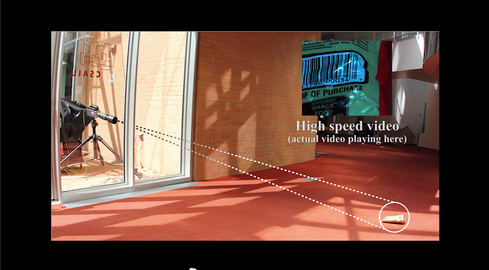Foursquare Now Tracks Your Every Move
Foursquare relaunched its flagship app with a bevy of new features, personalization options -- and a setting that consistently tracks your location.


Eavesdropping On A New Level
Eavesdropping On A New Level (Click image for larger view and slideshow.)
Three months ago, Foursquare announced it would split its flagship app into two: one exclusively for check-ins, which it calls Swarm, and a rebranded version of Foursquare that would focus solely on recommendations. Wednesday, the company reintroduced users to Foursquare with a completely redesigned interface and new features.
Foursquare 8.0, available for iOS and Android, is radically different from the original, from its logo to its new function as a discovery engine. When you log into the app after downloading the update, it prompts you to set your preferences, which includes tapping through a series of "tastes" -- anything from fish tacos and bourbon to cozy places and bar games.
Foursquare uses these preferences -- along with places you checked into in the past, data from your friends, and information from restaurant ratings -- to suggest new and popular places to shop, eat, or grab a cup of coffee. You can also use the app's many filters to find the perfect place by narrowing your search by distance, places you haven't visited, price, type of restaurant, and more.
[Learn how Facebook tracks your location. Read Facebook Friend Tracking: 3 Facts.]
But along with Foursquare's bevy of new features is an important change to a privacy setting. Whether you're new to the service or used the app in the past, Foursquare's latest update automatically opts you into the Background Location setting, which actively tracks you wherever you go. In other words, Foursquare knows where you are at all times, whether you're using the app or not.
The company says it developed this setting for Foursquare and Swarm to "help you discover great places and keep up with your friends, even when your phone is in your pocket." If you choose to keep this setting turned on, you might receive push notifications when you're near a restaurant that aligns with your interests, such as a new burger joint or coffee shop.
Foursquare also notes that keeping the setting turned on all day will drain your battery by about 0.7% per hour. If your battery slips below 30%, the app automatically turns off location tracking. But if you're concerned about location tracking and the data it will collect about your movements, you can turn it off, too:
Inside the app, tap the Profile icon at the bottom, then tap Settings. Find the Location Settings option, then switch off Background Location. This will prevent Foursquare from logging your location when you're not using the app.
While Foursquare says it doesn't share your personal location information with anyone, automatically opting users into this setting will arm the company with droves of valuable data. According to a report from The Wall Street Journal, Foursquare said it hopes to analyze trends in users' locations, including the most popular destinations, and could sell that data to its partners.
In April, Facebook launched a similar background location-tracking setting for a new feature called Nearby Friends, which alerts you when friends are within a certain radius. Unlike Foursquare, Facebook made this location-tracking feature opt-in. It also provided ways to delete your location history, which Foursquare doesn't appear to do.
Twitter also tested a feature that lets you see tweets sent from people near your location, regardless of whether you followed the account. In March, a new app called Cloak launched that pinpoints your friends' social media activity so you can avoid them in real life.
The company does, however, appear to think that users will be willing to exchange location information for a more personalized experience.
"Our phones should learn about us -- our tastes, our social connections, and our preferences. And, using what they know, they should help us better explore the world around us," Foursquare said in a blog post. "If you're in a new city, it should tell you that your friend Katy highly recommends this hole-in-the-wall restaurant downtown. If you crave spicy food, it should advise which dishes you should order when you sit down for dinner. We built the all-new Fousrquare to realize this vision."
Consumerization means CIOs must grant personal devices access to corporate data and networks. Here's how to avoid loss and corruption. Get the new Mobile Security Action Plan issue of InformationWeek Tech Digest today (free registration required).
About the Author(s)
You May Also Like
How to Amplify DevOps with DevSecOps
May 22, 2024Generative AI: Use Cases and Risks in 2024
May 29, 2024Smart Service Management
June 4, 2024







